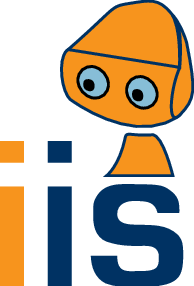research:projects
Differences
This shows you the differences between two versions of the page.
| Both sides previous revision Previous revision Next revision | Previous revision Next revision Both sides next revision | ||
|
research:projects [2017/09/14 17:22] c703101 |
research:projects [2019/07/15 09:38] Justus Piater |
||
|---|---|---|---|
| Line 1: | Line 1: | ||
| ====== Externally-Funded, Collaborative Projects ====== | ====== Externally-Funded, Collaborative Projects ====== | ||
| - | ===== Current EU Projects ===== | + | ===== Current Projects ===== |
| - | {{:research:imagine-transparent.svg?nolink&200 ||}}[[https://www.imagine-h2020.eu|IMAGINE - Robots Understanding Their Actions by Imagining Their Effects ]] (EU H2020, 2017-2020): seeks to enable robots to understand the structure of their environment and how it is affected by its actions. “Understanding” here means the ability of the robot (a) to determine the applicability of an action along with parameters to achieve the desired effect, and (b) to discern to what extent an action succeeded, and to infer possible causes of failure and generate recovery actions. | + | OLIVER - Open-Ended Learning for Interactive Robots (EUREGIO IPN, 2019-2022): We would like to be able to teach robots to perform a great variety of tasks, including collaborative tasks, and tasks not specifically foreseen by its designers. Thus, the space of potentially-important aspects of perception and action is by necessity extremely large, since every aspect may become important at some point in time. Conventional machine learning methods cannot be directly applied in such unconstrained circumstances, as the training demands increase with the sizes of the input and output spaces. |
| + | Thus, a central problem for the robot is to understand which aspects of a demonstrated action are crucial. Such understanding allows a robot to perform robustly even if the scenario and context change, to adapt its strategy, and to judge its success. Moreover, it allows the robot to infer the human intent and task progress with respect to the goal, enabling it to share the task with humans, offer help or ask for help, resulting in natural human-robot cooperative behavior. | ||
| + | |||
| + | <html> | ||
| + | <div style="clear:both"><br></div> | ||
| + | </html> | ||
| + | |||
| + | {{:research:imagine-transparent.png?nolink&200 ||}}[[https://www.imagine-h2020.eu|IMAGINE - Robots Understanding Their Actions by Imagining Their Effects ]] (EU H2020, 2017-2020): seeks to enable robots to understand the structure of their environment and how it is affected by its actions. “Understanding” here means the ability of the robot (a) to determine the applicability of an action along with parameters to achieve the desired effect, and (b) to discern to what extent an action succeeded, and to infer possible causes of failure and generate recovery actions. | ||
| + | |||
| + | <html> | ||
| + | <div style="clear:both"><br></div> | ||
| + | </html> | ||
| + | |||
| + | |||
| + | ===== Completed Projects (Selection) ===== | ||
| + | |||
| + | {{:research:flexrop-logo.png?nolink&200 ||}}[[https://www.profactor.at/en/research/industrial-assistive-systems/roboticassistance/projects/flexrop/|FlexRoP - Flexible, assistive robot for customized production]] (FFG (Austria) ICT of the Future, 2016-2019): Production of mass customized products is not easy to automate since objects and object positions remain more uncertain compared to mass production scenarios. Uncertainty handling motivates the application of advanced sensor-based control strategies which increases system complexity of robot applications dramatically. A possible solution to this conflict is the concept of task level or skill based programming that will render modern robot systems. Such systems can be applied without safety fence, are easier to program, more applicable and transformable into capable robot assistants. The project will implement a skill based programming framework and will apply it on selected industrial demo scenarios and evaluate research results. The main focus of the project is the application of methods to acquire process information by worker monitoring and thus make the robot assistants self-learning. | ||
| <html> | <html> | ||
| Line 20: | Line 36: | ||
| <div style="clear:both"><br></div> | <div style="clear:both"><br></div> | ||
| </html> | </html> | ||
| - | |||
| - | |||
| - | ===== Completed Projects (Selection) ===== | ||
| {{:research:pacman_logo2.png?nolink&110 |PaCMan}} [[http://www.pacman-project.eu/|PaCMan]] (EU FP7-ICT-STREP, 2013-2016) advances methods for object perception, representation and manipulation so that a robot is able to robustly manipulate objects even when those objects are unfamiliar, and even though the robot has unreliable perception and action. The proposal is founded on two assumptions. The first of these is that the representation of the object's shape in particular and of other properties in general will benefit from being compositional (or very loosely hierarchical and part based). The second is that manipulation planning and execution benefits from explicitly reasoning about uncertainty in object pose, shape etcetera; how it changes under the robot's actions, and the robot should plan actions that not only achieve the task, but gather information to make task achievement more reliable. | {{:research:pacman_logo2.png?nolink&110 |PaCMan}} [[http://www.pacman-project.eu/|PaCMan]] (EU FP7-ICT-STREP, 2013-2016) advances methods for object perception, representation and manipulation so that a robot is able to robustly manipulate objects even when those objects are unfamiliar, and even though the robot has unreliable perception and action. The proposal is founded on two assumptions. The first of these is that the representation of the object's shape in particular and of other properties in general will benefit from being compositional (or very loosely hierarchical and part based). The second is that manipulation planning and execution benefits from explicitly reasoning about uncertainty in object pose, shape etcetera; how it changes under the robot's actions, and the robot should plan actions that not only achieve the task, but gather information to make task achievement more reliable. | ||
research/projects.txt · Last modified: 2024/02/19 12:24 by Antonio Rodriguez-Sanchez

